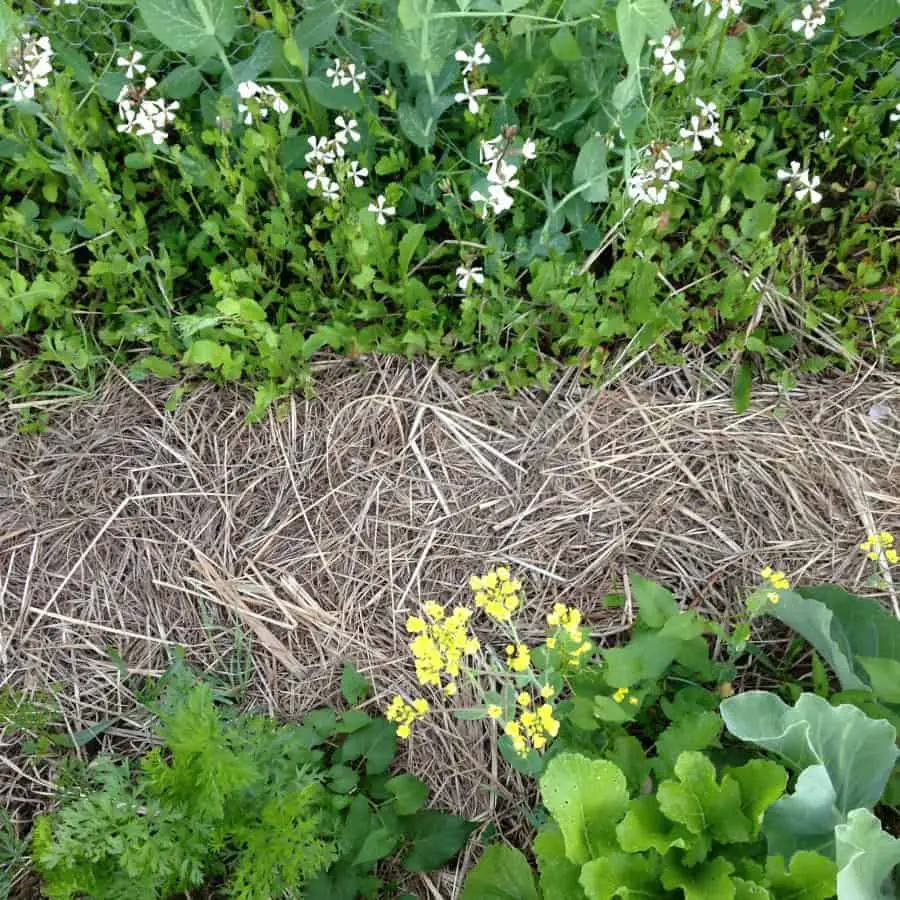
Garden mulches are great for your garden for many reasons.
Mulching your garden is great for:
- Building up your garden soil by adding organic matter. The mulch gets decomposed by soil microbes and grows their population which increases nutrient uptake by your plants.
- Suppressing garden weeds. The mulch blocks out the sunlight reducing germination rate.
- Creating healthier plants because there’s less weed competition which increases nutrient uptake and underground root expansion.
- Reduces the need for watering as there’s less soil evaporation happening and better water retention. This is great for areas of drought.
There are Some Cons to Garden Mulches
The benefits of mulching your garden are so high it seems like there can’t be any cons right?
Some of the main problems are pests, weed seeds or chemicals depending on the mulch you use.
Slugs like the cool damp mulch and can easily hide & reproduce. Rodents can also increase in population as they like to nest and can hide. Another con is that depending on the type of mulch you use, sometimes you’re adding chemicals or weed seeds.
Mulch also decomposes fast and you’ll need to re-apply your garden mulch every year.
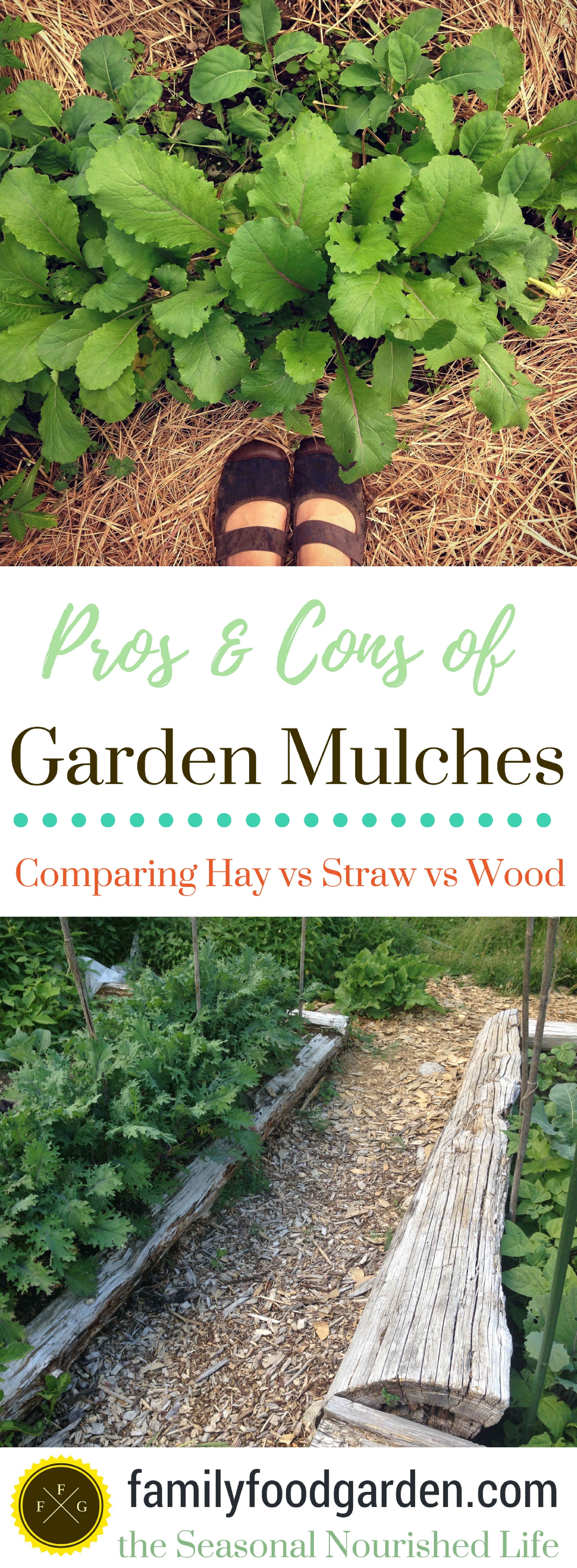
Pros & Cons of Different Garden Mulches
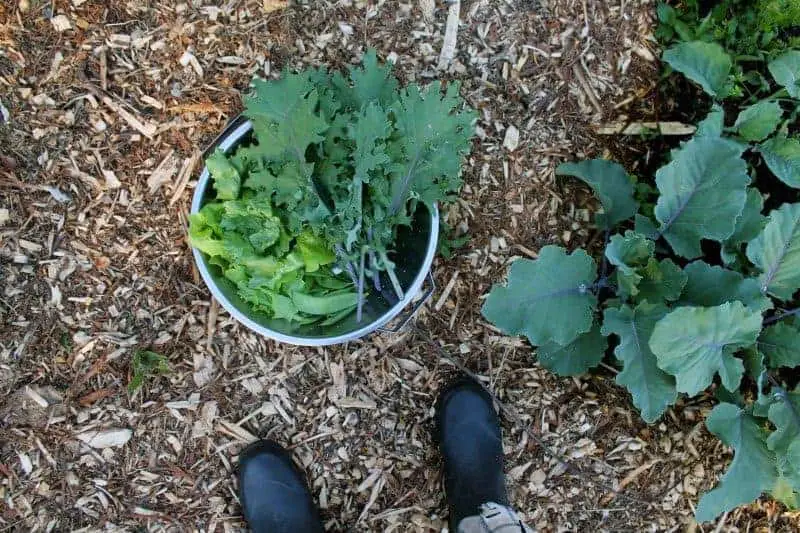
Wood Chips
Ever since watching ‘Back to Eden’ wood chips have gained massive popularity as a garden mulch. They are heavier than straw or hay and less likely to have slugs. It also compacts down better. Some wood chips can be toxic to your garden depending on where you get them from. Many arborists will sell or offer wood chip mulch but not guarantee it’s free of toxic wood that’s poisonous to other plants. There’s a big discussion on whether or not using wood chips in the garden increase acidity levels in the soil. I loved reading these in-depth posts from reformation acres on mulching with wood chips: ‘Rethinking wood chip mulch’ and ‘5 Things You Should Know about Wood Chip Mulch’
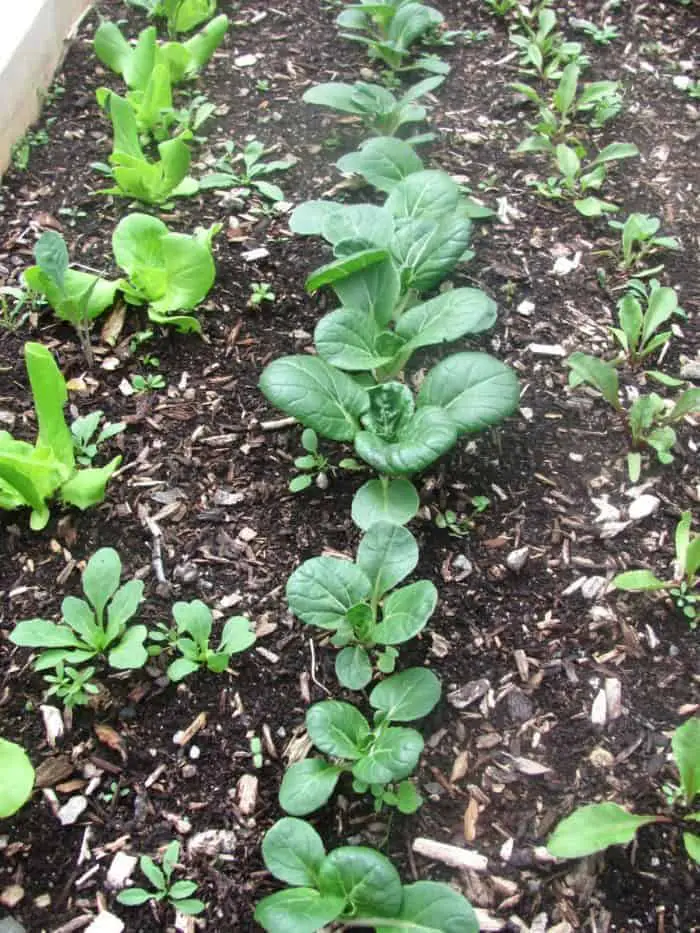
I personally love having wood chips on the garden paths to reduce weeds, but not IN the garden beds.
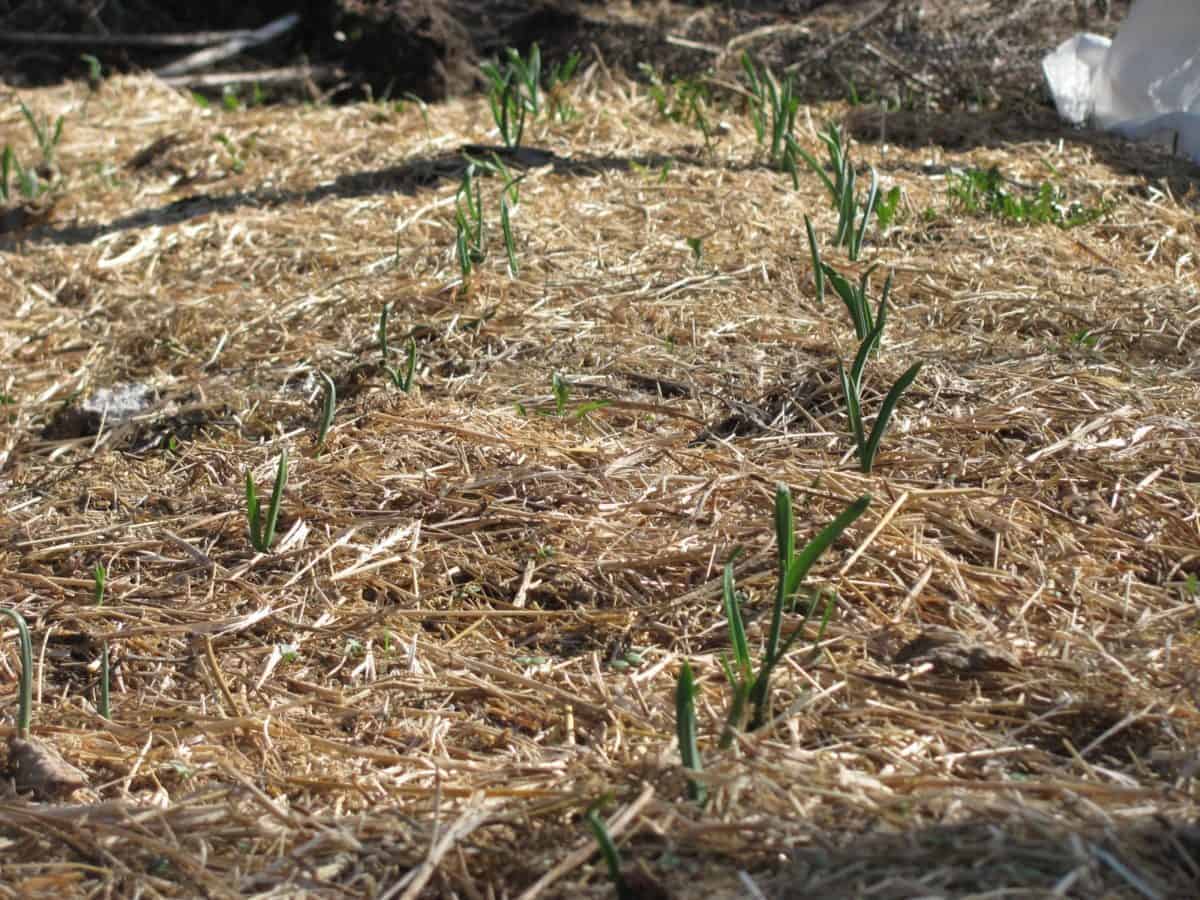
Hay & Straw
Hay and straw are great to help build up your soil because it decomposes fast. Hay or straw can also create problems depending on the type you buy. Hay tends to have weed seeds in it, I’ve used hay a few times to suppress weeds only to have grass seeds sprout making it worse for weeds than before!
Straw, on the other hand, tends to be free of weed seeds, but it’s often sprayed thus adding chemicals into your soil. You can buy straw bales that haven’t been sprayed, we managed to find sedge bales that weren’t sprayed. You can also create your own ‘hay’ with grass clippings.
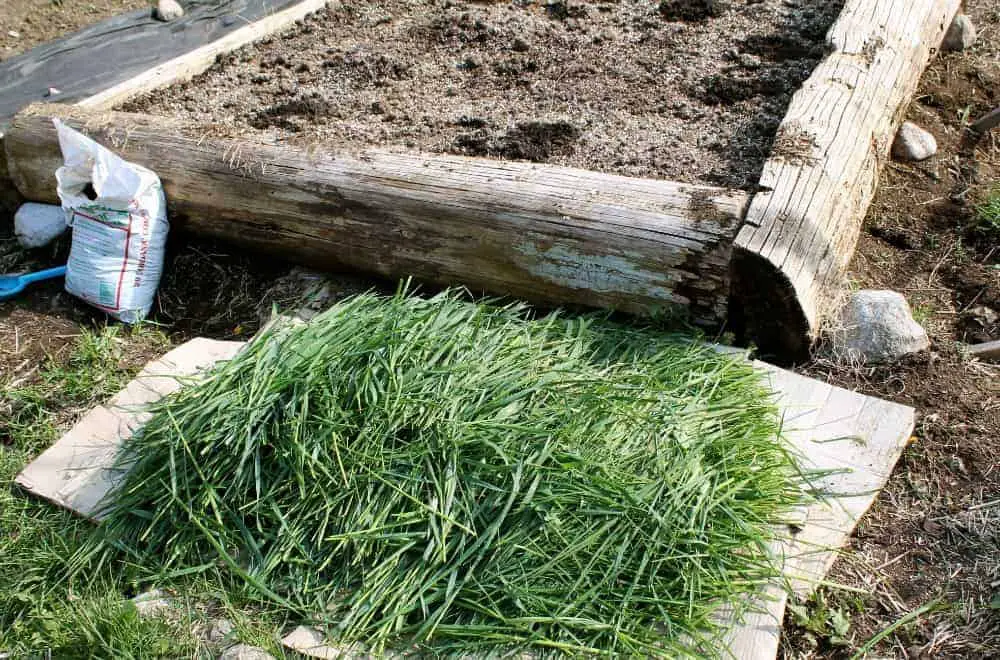
Weeds as Free Garden Mulch
Did you know you can mulch your garden with backyard weeds? So long as those weeds haven’t gone to seed, using weeds as garden mulch is the most inexpensive option depending on what type of backyard you have. If you don’t have an acreage you may not be able to use this option, but if you have weeds like large burdock leaves or tall grass that you can cut, weeds can make excellent garden mulch.
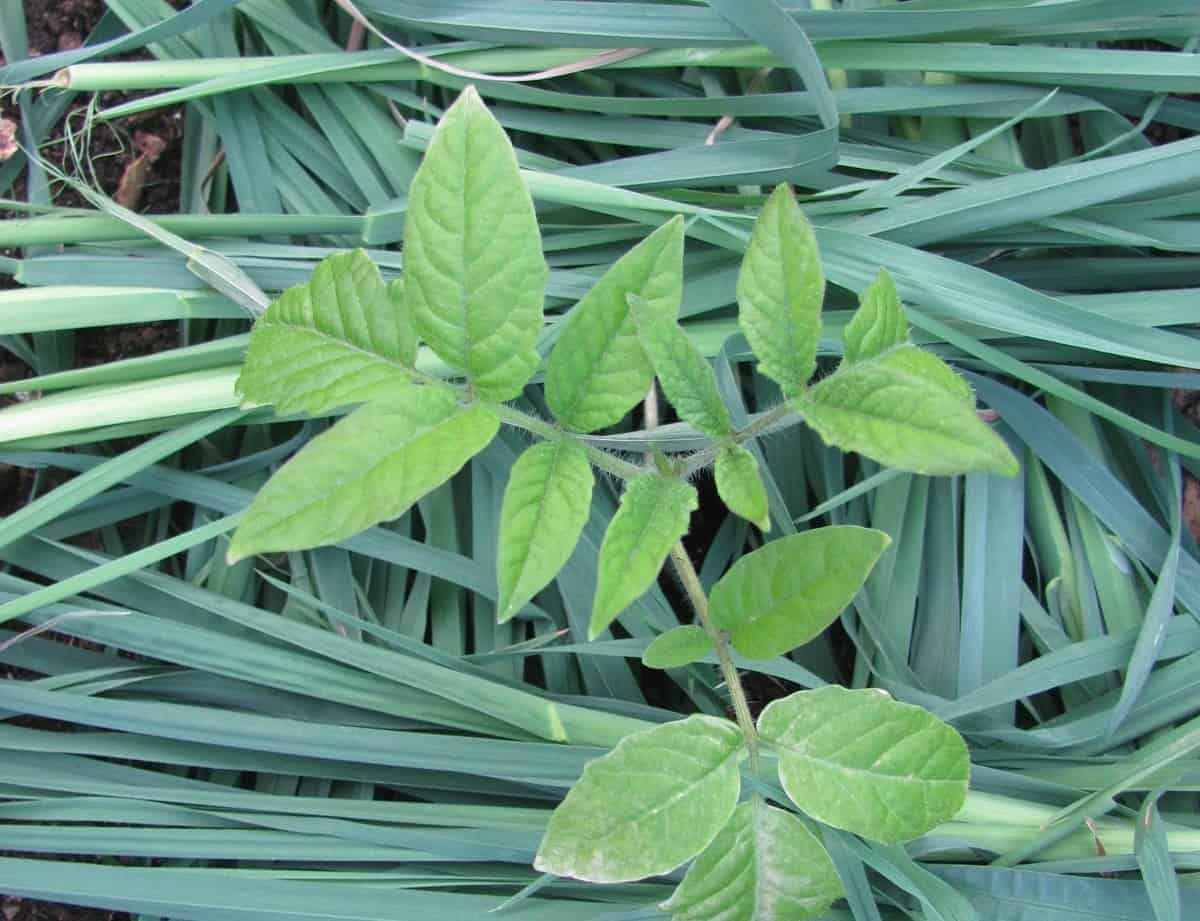
So Which Garden Mulch is Best?
It depends on your garden size, the cost of the mulch and how your pest problems are. I personally prefer using weeds, grass clipping in the beds and wood chips in the paths and around fruit trees.
What is your preferred garden mulch?
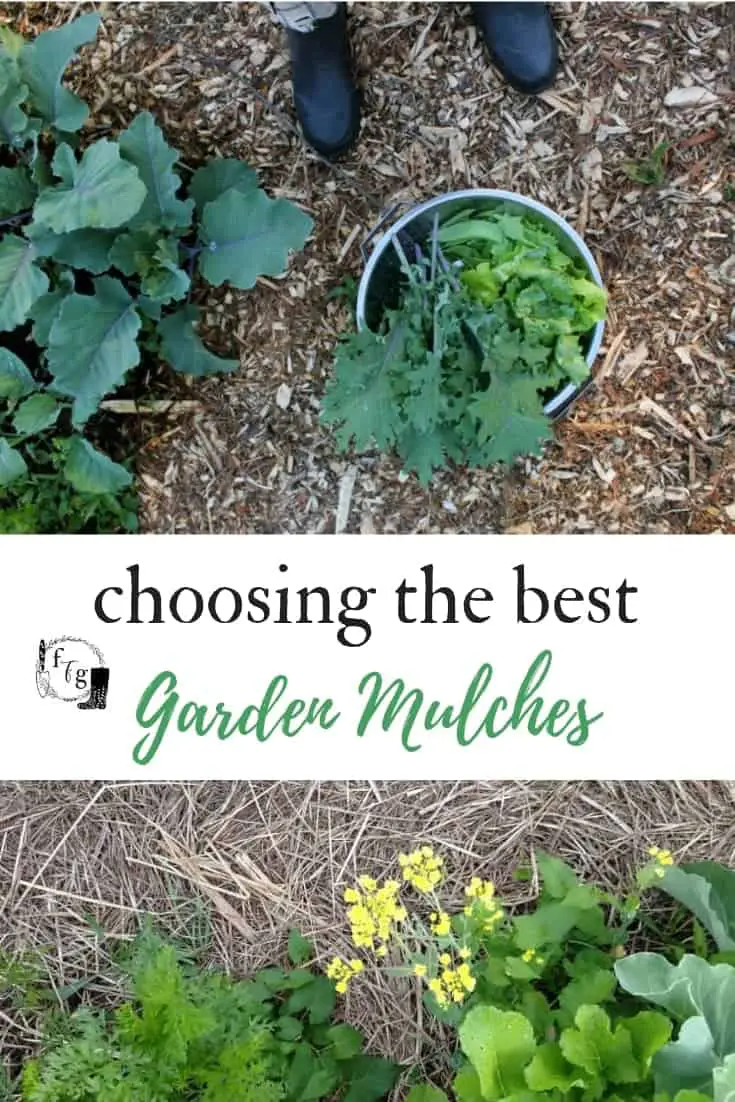

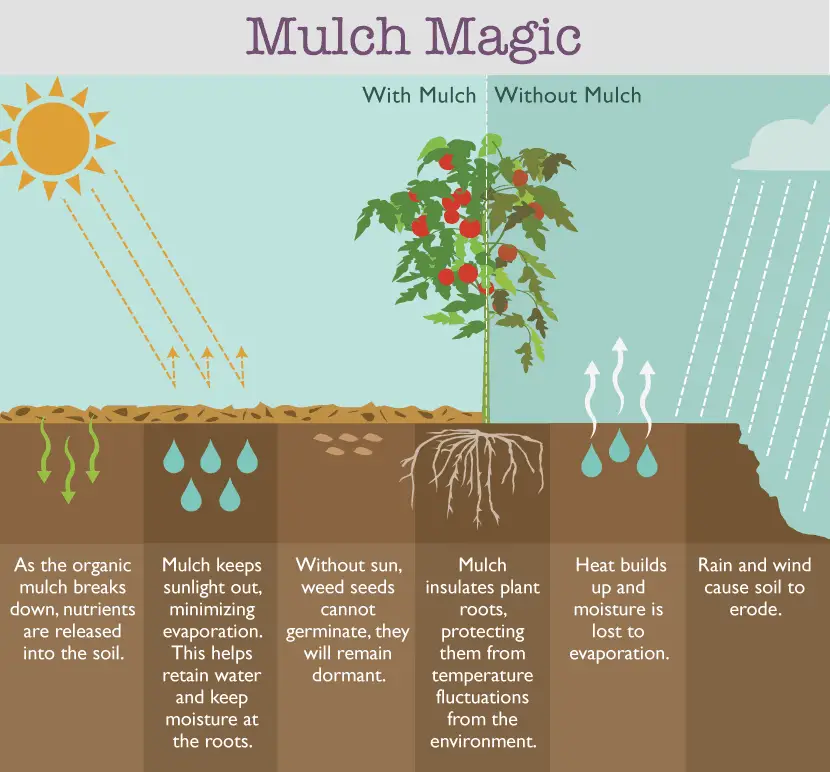
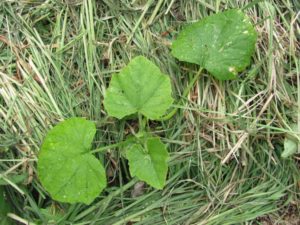
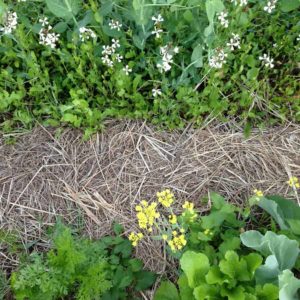
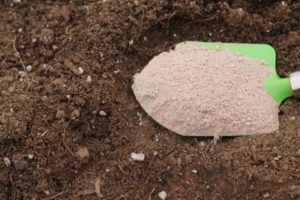

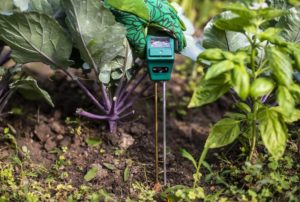
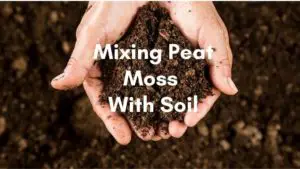
I’m in zone 8b north east Texas. I concur 100% with your article. I’ve been doing BTE method 3 years, Ruth Stout method 2 years and Mittleider method 1 year. I have lots of arborist mulch at my disposal, but it was slow to break down and harbored insect eggs on the beds. So I moved it into the paths. Love it there, and it is decomposing more rapidly due to foot traffic. About every 2 years it has totally broken down and I move the top layer into the garden beds before adding a new 4” layer of the wood mulch.
Ragweed and goldenrod are prolific in my area, but if pulled before they go to seed, they are excellent mulch in the orchard or under ornamental shrubs.
Sounds like you’re doing some fantastic gardening 🙂 Thank you for sharing
I’ll stick with hay.I use it straight from the bale and some I will run through the lawn mower, mix and add to my raised bed vegetable garden. Keeps weeds down, keeps moisture in, keeps soil cooler, keeps plants from getting stressed.
Plants first , then drip lines, then hay. Then the cat takes naps on the cool hay in the shade.
Adding some sand to your garden makes weeding easier, it’s not just for asparagus
My raised beds soil is mostly composted cow manure from a local farmer friend, black gold.
Thanks for the insightful comparison of garden mulches! Mulching indeed offers various benefits, and your breakdown of the pros and cons for different types is very helpful. I appreciate the consideration of factors like soil acidity, weed suppression, and potential pest issues.
Personally, I’ve found a combination that works best for my garden—using wood chips on paths and around trees while incorporating homemade ‘hay’ from grass clippings in the beds. It’s always interesting to hear about others’ preferences. What’s your preferred garden mulch? Share your thoughts in the comments below!